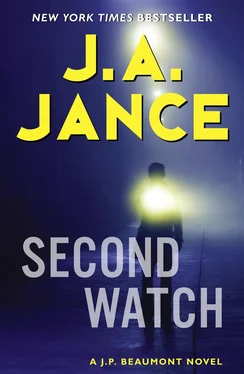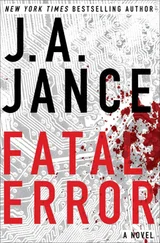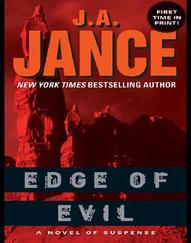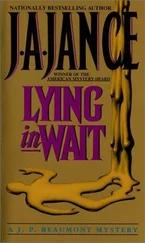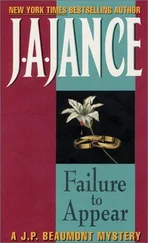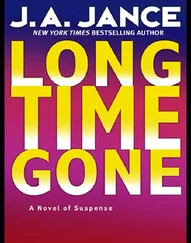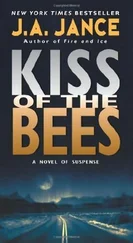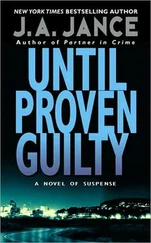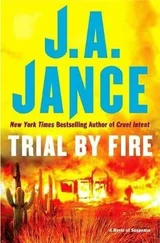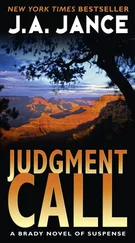Harlan pulled a cigarette out of the almost empty pack in his pocket. If he’d offered me one, I would have taken it, but he didn’t.
“Look,” he said, taking the first draw. “You asked me about drum number 1432. I told you about drum number 1432. Now how about if you tell me what this is really all about?”
“Your drum was found at the base of Magnolia Bluff on Sunday evening,” Watty explained. “There was a dead girl mixed in with what was left of the grease. According to the M.E., she had been dead for about two days before she was found. The victim was last seen on Friday night when she left her dormitory at the University of Washington to go on a blind date.”
“So you’re thinking Steve’s the blind date?” Harlan Bates said with a harsh laugh. “Good luck with that.” He wasn’t the least bit upset about the question. In fact, a slow grin was spreading over his jowly face.
“Where was he?” Watty asked again.
“You ever hear the phrase ‘queer as a three-dollar bill’?” Harlan asked.
Watty nodded.
“Well, that’s Stevie for you. Doesn’t look like a pretty boy by any means. And people who think they can push him around for it generally don’t try that stunt a second time. But I’ll tell you for sure, my cousin Stevie wouldn’t be caught dead with a woman, and most especially not a coed from the University of Washington. He barely finished eighth grade.”
“I still need to know where he was on Friday.”
“Probably at home with my aunt Nelda and her cats, same as he is every night. Her place is over by the airport. He looks after her, but he wouldn’t be driving around late at night because he doesn’t have a license. Can’t read well enough to pass the test. So if you’re thinking he’d be out somewhere hanging out with a cute coed type, you’ve got another think coming.”
“What about the driver?”
“His name’s Manny Ortega, but I’m telling you, as far as Manny is concerned, it’s the same thing.”
“What do you mean the same thing?” Watty asked.
“Manny would be at home on Friday night and Saturday night, too, with Aunt Nelda and Stevie. She lives downstairs, they live upstairs.”
“Wait, Stevie and Manny are a couple?” Watty asked. Something about his professional Homicide demeanor had slipped. He looked more than a little shocked.
Harlan Bates shrugged. “Whatever turns them on, I suppose. Before those two guys got into AA, they used to have some hellacious fights. Now they’re both sober. Except for the occasional lovers’ spat, I couldn’t ask for a better team.”
Watty said nothing. He seemed to be concentrating on closing his notebook and putting away his pen. If there was an interview lesson for me in all this, I doubt it was the one he had intended.
“Anything else, gentlemen?” Harlan Bates asked.
“No,” Watty said quietly. “I believe we have everything we need at the moment.”
We went outside and got back into the car. Watty hadn’t told me where we were going next. I fired up the engine and a filtered Winston and sat there smoking with the car idling while Watty got on the radio. A few minutes later, the clerk in Records read off an address on Twenty-first Avenue South.
“That’s where we’re going?” I asked.
“Yup,” Watty said. “We’re going to go ask Harlan’s aunt Nelda a few questions before we interview Manny and Stevie.”
Tossing my half-smoked cigarette out the window, I turned and reached into the backseat for the ragged Thomas Guide, a dog-eared paperback collection of street maps for Seattle and King County that was standard equipment in every vehicle operated by Seattle PD back before the advent of GPS technology.
While we made our way south and west, Watty shook his head in dismay. “Just looking at that guy,” he said, “I never would have guessed.”
“Me, either,” I agreed. “Never in a million years.”
CHAPTER 5 Contents Cover Title Page Copyright Dedication Prologue Chapter 1 Chapter 2 Chapter 3 Chapter 4 Chapter 5 Chapter 6 Chapter 7 Chapter 8 Chapter 9 Chapter 10 Chapter 11 Chapter 12 Chapter 13 Chapter 14 Chapter 15 Chapter 16 Chapter 17 Chapter 18 Chapter 19 Chapter 20 Chapter 21 Chapter 22 Chapter 23 Chapter 24 Chapter 25 Chapter 26 Chapter 27 Author’s Note Конец ознакомительного фрагмента. Текст предоставлен ООО «ЛитРес». Прочитайте эту книгу целиком, купив полную легальную версию на ЛитРес. Безопасно оплатить книгу можно банковской картой Visa, MasterCard, Maestro, со счета мобильного телефона, с платежного терминала, в салоне МТС или Связной, через PayPal, WebMoney, Яндекс.Деньги, QIWI Кошелек, бонусными картами или другим удобным Вам способом. The Story Behind Second Watch About the Author By J. A. Jance About the Publisher
The last thing I remembered, I had been lying awake, listening to the whispered murmurs of the mattress and the continuous motion of the passive-movement exercise machine and thinking about that long-ago time. I had no idea I had drifted off to sleep until good old Nurse Keith came hustling in to disturb my slumber yet again. It was still dark outside, but I saw the occasional flash of lightning in the window, accompanied by the low rumble of thunder.
“It’s been pouring for over an hour now,” he said. “I guess summer’s over.”
It was mind boggling to be transported across forty years in what seemed like the blink of an eye. In 1973 the very idea of a pair of guys living openly as a couple was enough to give even a seasoned homicide cop like Watty a bit of a pause. Back in those homophobic good old days, as far as most of us were concerned, the word “gay” had meant nothing more nor less daring than “happy.”
I also recalled that way back then most nurses had been women. They wore white uniforms and funny white caps with a black bar across the top. Keith’s colorful scrubs were a long way from that. First he took my vitals, and then he dealt with the surgical drains on both my incisions. I think he called them “pomegranates,” or some other kind of blood red fruit, but that could just be my random access memory being screwed up due to the drugs. I did notice that Keith was wearing what looked like a wedding band, which might or might not mean what it used to mean. However, since he was clearly good at his job, I didn’t ask about his personal life. It was none of my business.
I dozed again after Nurse Keith left, and it was probably the continuing rumble of thunder that took me back to that other time and place. When the next guy to come into the room was wearing a set of fatigues, I wasn’t even surprised. The fatigues weren’t the new desert-style BDUs that showed up sometime in the early eighties, but the old familiar olive green ones that we used back in ’Nam.
My new unexpected visitor walked over to the bedside table and pulled a deck of playing cards out of his pocket. He peeled off four cards and laid them out in front of me, facedown on the table next to my pitcher of water. I knew without looking that if I reached out and turned them over, they would all be aces of spades. I looked up and saw exactly what I expected: a crooked, chip-toothed grin; a handsome face; penetrating blue eyes; short blond hair. It may have been close to fifty years since I’d seen Second Lieutenant Lennie Davis last, but you never forget the face of the first guy who saved your life.
“Hey, asshole,” he said, grinning. “You got old.”
And you didn’t. That’s what I wanted to say, but of course I didn’t. When you’re in the presence of ghosts, even drug-induced ghosts, I don’t suppose it’s polite to point out that they’re dead and you’re not.
Читать дальше
